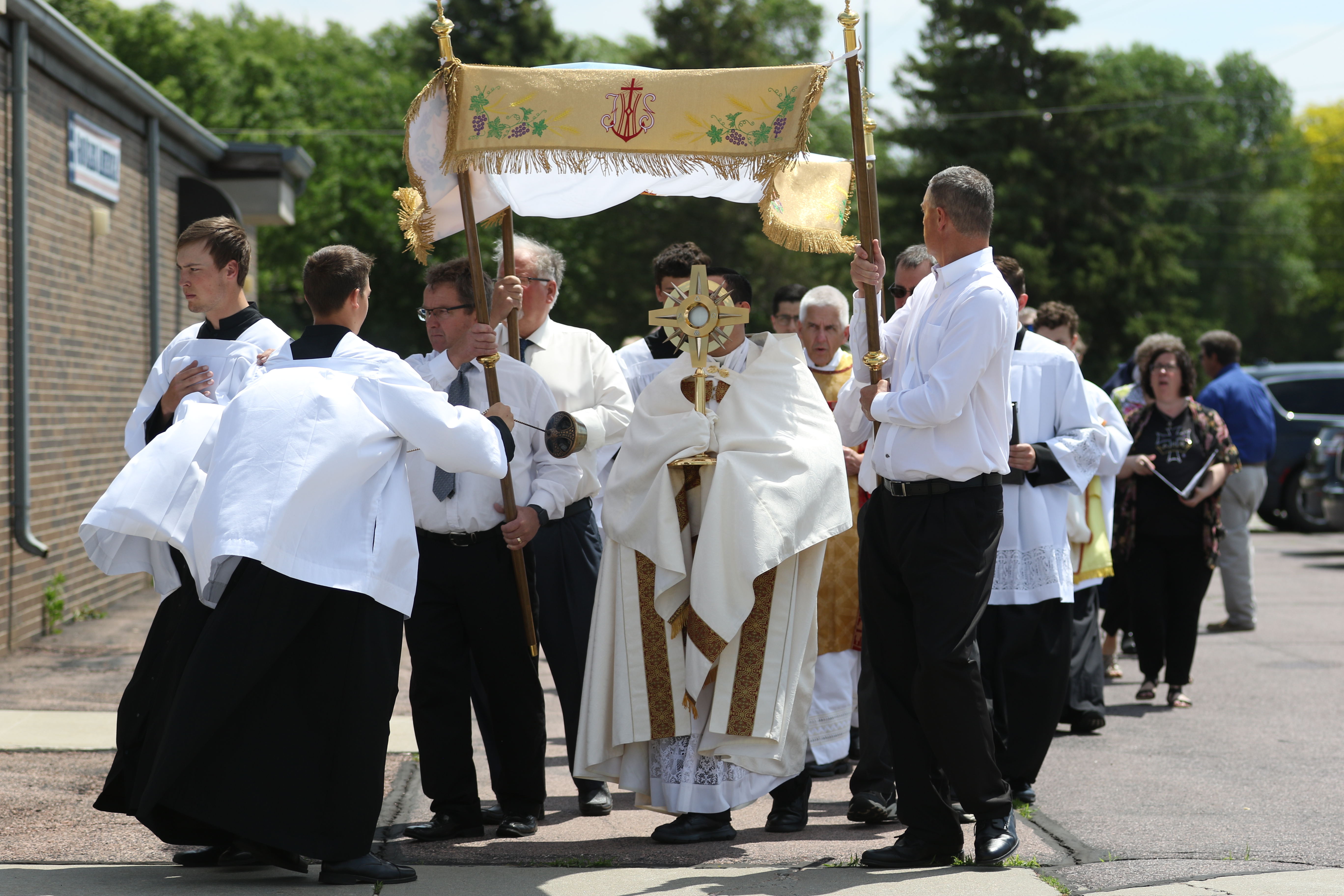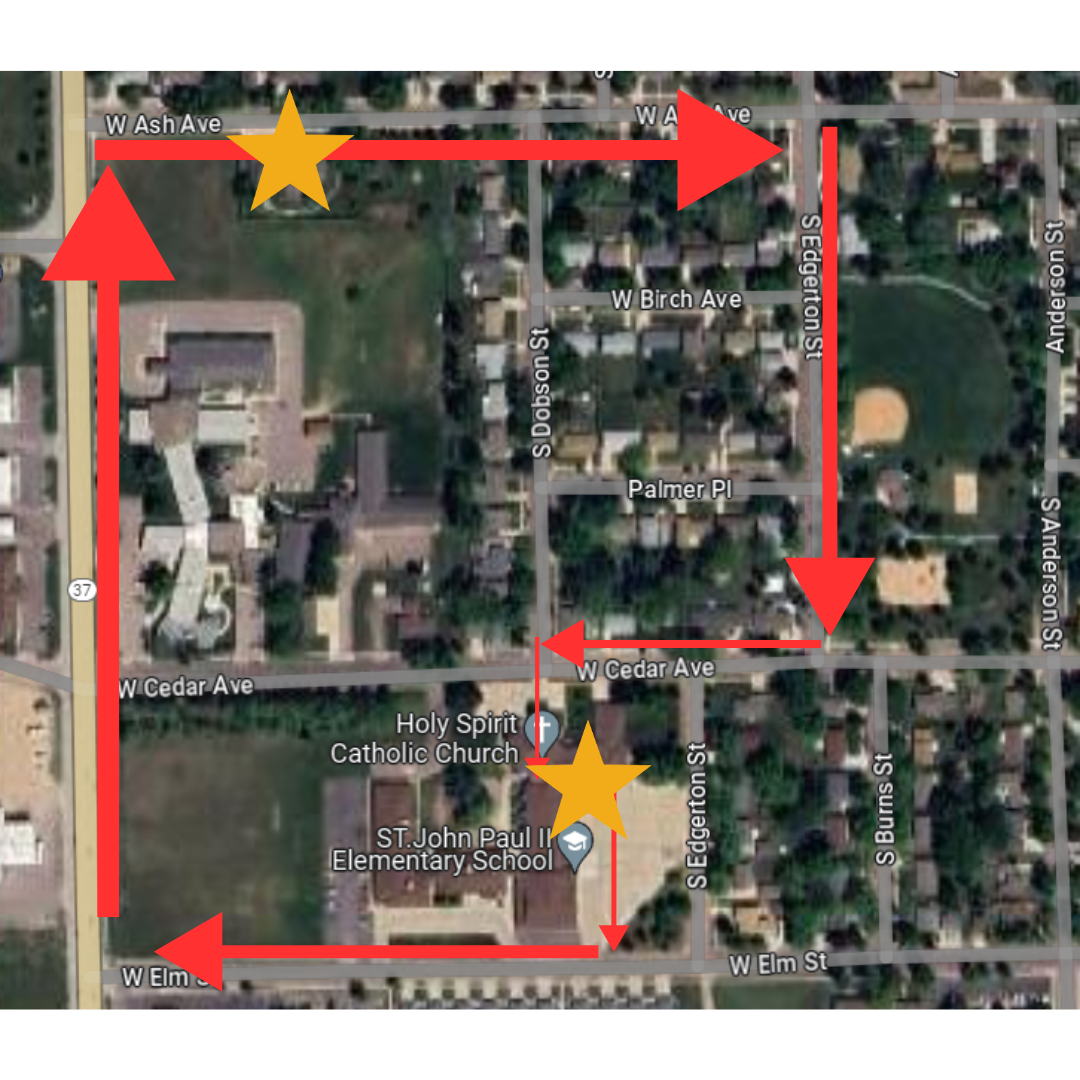
Several young adults from our parishes had the opportunity to participate in a Pro Ecclesia Sancta-led international mission trip in June near Huancayo, Peru.
Attendees from our parishes included Kanin Nelson, Kellen Odell, Miranda Hanson, Connor Singrey, Brady Wilson, Elyssa Delehant, and Br. Bryan Esquivias, PES. There were a total of 35 missionaries and four religious priests, brothers and sisters.
The trip and mission work occurred at a Pro Ecclesia Sancta mission center call Misiones Huascaran, located in the Andes of Peru, outside of the city Huancayo. Mission work included working on a chapel located at the cemetery, which is used by seven different villages to bury their deceased. The work included digging, making and laying concrete, and plastering the walls. In addition to construction, the women missionaries also worked with catechesis of the local children.
The Pro Ecclesia Sancta community hopes to take another local group of missionaries to Peru next year. Any college-aged youth are encouraged to be on the lookout for an invitation for this life-changing experience.

Volunteers are needed to help celebrate our 2024 Pastorate Summer Festival with a special honor for Sr. Marita & Sr. Nancy who will be celebrating jubilees! Thank you in advance for your generosity.

The Mitchell Catholic Pastorate held a one-mile Corpus Christi Procession on Sunday, June 2, departing Holy Spirit Catholic Church.
Fr. Cesar and Fr. Yamato rotated in carrying the Blessed Sacrament. The procession stopped at altars at St. John Paul II School and the PES Formation House. In addition to the altar servers, first communicants preceded the Blessed Sacrament and strew rose petals. Knights of Columbus carried the canopy over the priest and Blessed Sacrament and assisted at the altars. A choir, Catholic Daughters donning a "Charity and Unity" banner, families, parishioners and guests followed.
The procession concluded with Benediction in the church and a reception. Approximately 250 people were in attendance.

Holy Family and Holy Spirit churches will be completing a new, joint pictorial directory for our pastorate! Pictures will be taken July 16-20, 2024.
Schedule an Appointment
Appointments are now available. Sign-up online below or contact the Holy Spirit office at 605-996-7424.
To schedule an appointment, click the button below, and enter the following information (case sensitive):
Church Code: sd132
Password: photos
Volunteer
We also need to volunteers to host and sign-in families. You can also volunteer for a 2-hour time slot by clicking below.
Things to Know:
-
If there are more than 6 members in your family. please schedule 2 consecutive time slots.
-
Allow 45-60 minutes for photography and portrait viewing.
-
All photos for both parishes will be held at Holy Spirit church campus.
-
If you are not able to attend a session, you can submit a family photo for $15. Please ensure that it is high resolution. If taking a picture on your phone camera, set the resolution to HD.


Corpus Christi Procession to Take Place in Mitchell
MITCHELL, SD—The Mitchell Catholic Parishes of Holy Family and Holy Spirit will host a Corpus Christi procession on Sunday, June 2, 2024 at 12:00 PM in honor of the Solemnity of the Most Holy Body and Blood of Christ.
During the procession, the Blessed Sacrament will be carried by a priest to bring Jesus out into our community. Children who received their sacrament of First Communion this spring will be invited to lead the procession and strew flower petals along the path. Parishioners and guests are welcome to follow behind. Attendees can walk any portion of the procession or drive ahead to the stops and wait.
The route will start at Holy Spirit Catholic Church, go west on Elm Street, north on the sidewalk along Ohlman Avenue, turn east on Ash Avenue, and make a stop at the Pro Ecclesia Sancta Formation House (former Franciscan convent). After a time of adoration, the procession will continue east on Ash Avenue, turn south on Edgerton Street, and return to Holy Spirit Catholic Church. The total route is approximately 1.2 miles. A reception will follow at Holy Spirit church.
The Corpus Christi procession is a centuries-old tradition of the Catholic faith. For more information on Mitchell Catholic Parishes or the Procession, visit mitchellcatholic.org or contact Holy Family at 605-996-3639 or Holy Spirit at 605-996-7424.

